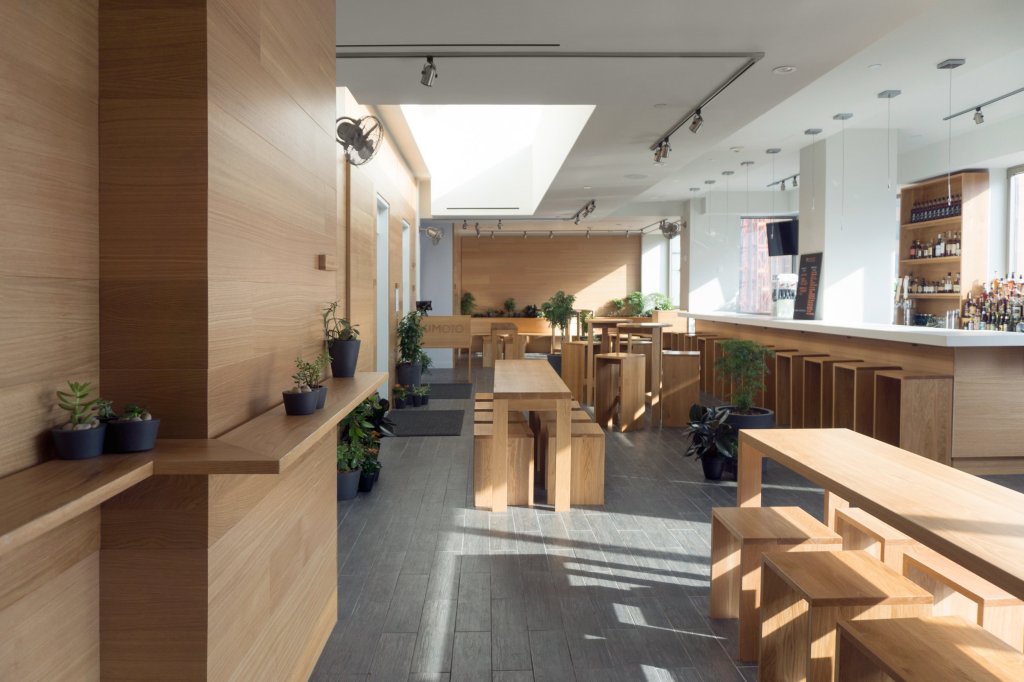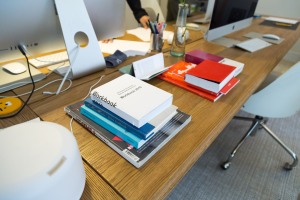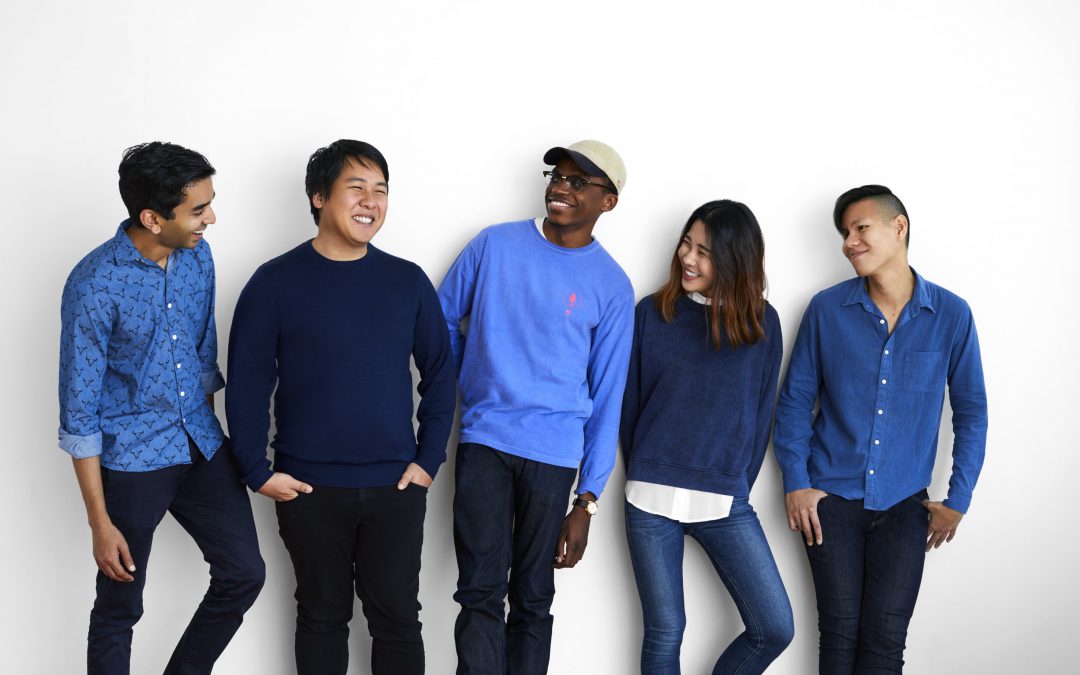Graphic designer Andy Chen is the founder of New York-based design consultancy Isometric. Since its inception in 2013, Isometric has worked with well known institutions across the world, including Anthem Health Insurance, Princeton University, Soros Fellowships for New Americans, and Columbia Business School.
TAP-NY visited Isometric and had a chance to ask Andy about his work, influences and how identity has played a role in his design philosophy.
Born to two Taiwanese immigrants in Monterey Park, California, Andy never thought of himself as an artist growing up. “I was a pretty terrible artist as a kid – typography was never in the vision of who I would be,” says Andy.
As first generation Taiwanese Americans, his family faced many difficulties growing up. After Andy was born, his mother had to go straight back to work that same week, as there was uncertainty about whether they would qualify for Medicaid. Later on, his parents founded an OEM notebook distributor company, which had to be sold at a loss to pay for college tuition for Andy and his younger brother.
“I always wanted to be a writer, but my parents wanted me to be a lawyer, which is a writer that makes money. Even up to college there was an idea of me going to law school,” recalls Andy.

In college, Andy studied sociology at Princeton University and was awarded the Pyne Honor Prize, the university’s highest general undergraduate distinction.

Identity and packaging for Function of Beauty
“At Princeton, I started doing graphic design as a hobby. But then with a friend who was actually an artist and architect, I founded a little agency at school. I graduated without knowing I would be a professional designer – I didn’t think I was good enough – and I was not good enough.”
After graduating, Andy spent a year researching stigma surrounding aging and sexuality. Leveraging his degree in sociology and supported by the Fulbright Award, Andy created a campaign that tried to destigmatize sex amongst older people to promote safe sexual habits. “That year was a big turning point for me because I decided not to go to Yale or law school after, but instead went to RISD for graphic design,” reflects Andy.
At RISD, Andy studied graphic design where he received his MFA as a Paul & Daisy Soros Fellow.

Identity and architecture for Kimoto Rooftop Beer Garden
After graduating in 2013, Andy decided to start Isometric with a classmate – fellow Taiwanese American Alex Huang. They brought with them clients for whom they did pro bono work during school, which later turned into paying clients.
“At the time, as two young Taiwanese American entrepreneurs with no real network, how do you convince businesses and institutions to entrust you to create design for them that has value?”
Hearing their concerns, Andy’s mentor, famed graphic designer Paula Scher, advised: “Don’t worry about the money, worry about your reputation and keep making the best possible work.”
“The first year was really hard – and a year in Alex decided to part ways for another opportunity. At that time, I had been in a personal relationship with Waqas [Jawaid] for 10+ years, and we always joked about working together but never thought we could reconcile the two, as I’m a graphic designer and he’s an architect. Turns out at that time Waqas happened to move to New York to join Skidmore, Owings & Merrill, and after a few months we were able to make working together a reality. Ever since, it’s been amazing partnering with Waqas because of his expertise in space – whether it’s designing a big exhibition for the United States Government, or designing a rooftop beer garden in downtown Brooklyn.”

Andy describes Isometric’s design philosophy as a product of three core intersections. “The first between graphic design and architecture. Second, between commerce and social issues – whether for a museum or an educational institution or a startup – thinking critically about consequences and impact on life. And third is between people who are marginalized and people in power – creating avenues and mechanisms via design to help engage and activate those who are excluded,” describes Andy.
Aside from Paula Scher, Andy and Isometric also draw inspiration from Taiwanese designer Aaron Nieh. As the first Taiwanese designer to be selected for the elite Alliance Graphique Internationale club, his take on “modernism informed by postmodernism by blending clean, simple, pure with illustrative, soulful, personal” can be seen in the intersections of Isometric’s philosophy.

Visual identity and spatial design for Princeton University Fields Center
This design philosophy not only draws from Andy’s background in sociology and his post-graduate thesis work, but also is a manifestation of his understanding and interpretation of his identity.
As Andy explains, “Taiwanese Americans are inherently a strange mix of things. For Chinese Americans or Korean Americans, there seems to be a firm idea of what that means – the cultures of those heritages seem less contested – than for Taiwanese where Japanese and American influence in Taiwan were significant.”

“Traditionally, Taiwanese Americans have always been folded in with all other Asian Americans, particularly Chinese Americans. And commonly, other than the food, it’s hard to define what exactly makes someone Taiwanese American. At first, I think of the food and night markets but that’s so superficial. At a deeper level, there are different sets of inherited traumas and celebrations about being Taiwanese and sharing that identity.”
“Growing up as a Taiwanese American in SoCal, you’re exposed to all of these contrasts at one time without being told that they historically have been separate from one another. And that attitude to work and design in general has helped Isometric succeed – being able to reconcile multiple contradictory impulses at a time.”

Parting with some words of wisdom for aspiring designers and entrepreneurs, Andy advises:
- Don’t let anybody tell you that you’re not talented. I’ve heard that throughout my life.
- It requires a lot of hard work and sacrifice to run a design practice. Being willing to do things that other people aren’t because they have the privilege of saying “that’s out of scope”. For immigrants there is still that need to fight harder than other people to succeed. We don’t have to be anything other than who you are, but you have the best that you can be.

